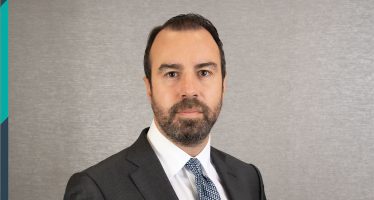CFI.co Meets the CEO of Sarit Centre: Nitin Shah
 Nitin Shah has registered over thirty years as the chief operations executive of the Sarit Centre – the first enclosed shopping mall in both Kenya and East Africa – a responsibility entrusted to him by the developers in 1982, barely a month after a coup attempt shattered the country’s economy.
Nitin Shah has registered over thirty years as the chief operations executive of the Sarit Centre – the first enclosed shopping mall in both Kenya and East Africa – a responsibility entrusted to him by the developers in 1982, barely a month after a coup attempt shattered the country’s economy.
Despite that inauspicious start to what in retrospective has been an outstanding career, Mr Shah assembled a basic management team and quickly got down to leasing the units of what in effect was a severely truncated project.
Given the unrest in Nairobi and the exodus of Asian businessmen, the developers had been forced to halt construction of what for its time was an architecturally ambitious mall project. Thus Sarit Centre opened with only 20% of its planned retail area.
As Mr Shah now confesses, he had at the time no clue about shopping centre management practices. He had to learn his trade on the job, figuring out the importance of an optimal tenant mix, the absolute need for optimal customer care, the essence of responding to shoppers’ requirements and the many other aspects and challenges of the mall business.
Mr Shah was born in Murang’a during the Mau Mau Emergency. He grew up and went to primary school in the upcountry township where his grandfather Vidhu Ramji Shah had started the family businesses comprising a hardware store, dairy and bookshop.
Aged 13, the young Mr Shah moved to Nairobi and enrolled at the Duke of Gloucester School (now Jamhuri High School) for his secondary education culminating in A levels. In 1974, he enrolled at the City of London Polytechnic to take the Higher National Diploma in Business Studies.
After graduating, Mr Shah returned to Nairobi in 1977 where he spent the next year in the family bookshop business before gaining a job at the local audit firm Kassam Lakha Abdulla & Co, now devolved to PKF Kenya – the leading audit and business consultants of East Africa.
In 1980, Mr Shah moved back to London in order to study for his Association of Chartered Certified Accountants (ACCA) qualification to which he later was to add the Certified Public Accountants of Kenya (CPA) certificate.
Back in Nairobi – in July, 1982 – Mr Shah married Priti. The couple was blessed with three daughters who all attended university and are now established with professional careers in their own right.
Mr Shah achieved national recognition as a badminton player and was also a strong volleyball player. However, his big love remains golf – a somewhat more relaxing pursuit and a weekend hobby which he took up in the early 1990s.
Mr Shah is widely travelled and is a regular participant of International Council of Shopping Centres (ICSC) meetings. He was the main speaker at an Africa Congress of the South African Council of Shopping Centres in Johannesburg. Mr Shah has visited the US, Canada, Australia, many of the Far Eastern countries, India, and much of Europe.
His extensive travels and research outside Kenya is being facilitated by the high level of expertise present in the expanded mall’s management team which was built up carefully over the year and now boasts a large number of dedicated and seasoned professionals.
Mr Shah is now looking forward to the opportunities that arise from the expansion of the mall which will allow him to head-up the planning team working on the next phases of the Sarit Centre’s development. The centre is set – and now well on its way – to become, over the next couple of years, one of the largest malls in Africa.
You may have an interest in also reading…
PwC Nigeria: Business Reorganisation in Nigeria – Key Tax Considerations
A popular saying has it that change is the only constant in life. This is true, especially in business. Organisations
Q&A with CEO of First Pension Custodian, Nigeria: Kunle Jinadu
His excitement hasn’t faded — and nor has his optimism for the sector. What excited you about the businesses you
Iskandar Najjar, Equiti Group CEO – Pulling Out All the Stops in Bid to Be the Best: Equiti Group at the Forefront of Fintech Sector
Under the leadership of the Equiti Group’s CEO, Mr Iskandar Najjar, Equiti has transformed into a fast-growing global industry challenger.
















































































